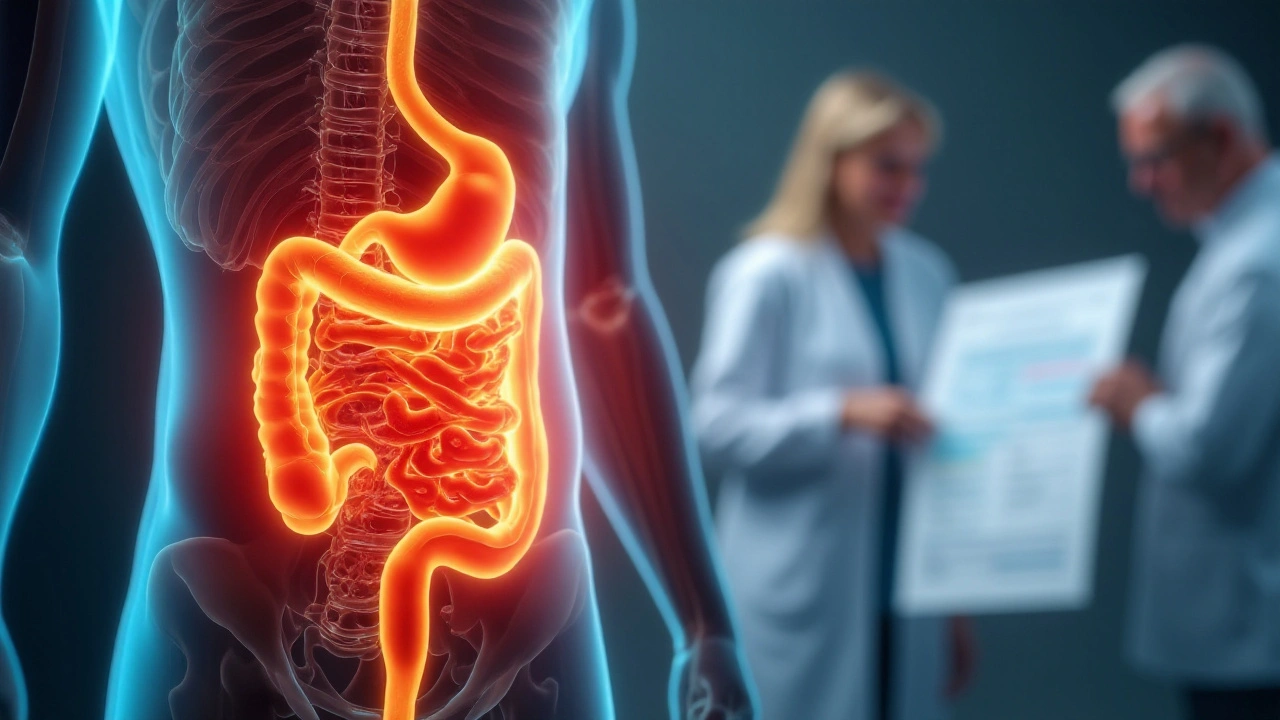Chronic Diarrhea: Straight Answers, Smart Solutions
When diarrhea just won’t stop, it can wreck your day and mess with everything—from work to sleep and even social plans. Chronic diarrhea sticks around for weeks or flares up regularly, way longer than a bad burrito or a nervous stomach. You want answers, not guesswork or vague advice.
First up, the basics: Chronic diarrhea means loose or watery stools that last more than four weeks. It’s not just a bathroom annoyance—it can make you tired, drain your energy, and put you at risk for dehydration and nutrient loss. Anyone who’s gone through this knows how much it gets in the way, and it’s not about willpower or eating "right." There’s nearly always a real reason behind it.
So, what’s causing it? It depends. Some people deal with irritable bowel syndrome (IBS), inflammatory bowel diseases (like Crohn’s or ulcerative colitis), food intolerances (think lactose), or infections that never fully clear up. There’s also the overlooked stuff: certain medications, overuse of laxatives, or even excess caffeine. Rarely, it could be tied to problems with your thyroid or pancreas. Bottom line: Getting an accurate diagnosis matters if you want lasting relief.
Worried it’s medication? Lots of commonly used drugs—from some antibiotics to blood pressure medicines—can flip your gut upside down. If your symptoms started after a new prescription, don’t tough it out. Bring it up with your doctor—sometimes switching meds is all it takes.
Treating chronic diarrhea isn’t just chugging electrolyte drinks and hoping for the best. Doctors might run blood tests, stool studies, or ask you to keep a food and symptom diary. If inflammation’s the culprit, you might be put on steroids like Medrol (methylprednisolone) to calm things down. Gut infections could need antibiotics, but never just grab these on your own—resistance is real, and you want the right fix.
If IBS is behind your symptoms, changes in diet (less FODMAPs, for example), certain supplements, or even prescription meds like antispasmodics can help. Diarrhea from food intolerances? Cutting the trigger food usually makes a difference, but make sure you’re not missing hidden sources—lactose pops up in all kinds of packaged stuff.
Suffering from dehydration is no joke. If you’re lightheaded, peeing less, or super thirsty, start sipping rehydration drinks (not just water) and call your doc if it doesn’t let up. Kids and older adults are especially at risk. Don’t wait if you see blood in your stool, unexplained weight loss, or belly pain that won’t quit—these can signal something more serious.
Ready for a reset? You don’t have to figure it out alone. Whether you need to review meds, try a safer online pharmacy, or get straight talk on supplements, real solutions are out there. Life doesn’t stop for chronic diarrhea, but you shouldn’t have to power through it blind.

The Small Intestine's Role in Chronic Diarrhea: Key Facts and Tips
Understanding the small intestine's role in chronic diarrhea can help with proper diagnosis and treatment. This article delves into the way the small intestine functions, common causes of chronic diarrhea related to it, and practical solutions to manage and treat symptoms. Improving knowledge about this organ is crucial for those suffering from chronic gastrointestinal problems.




